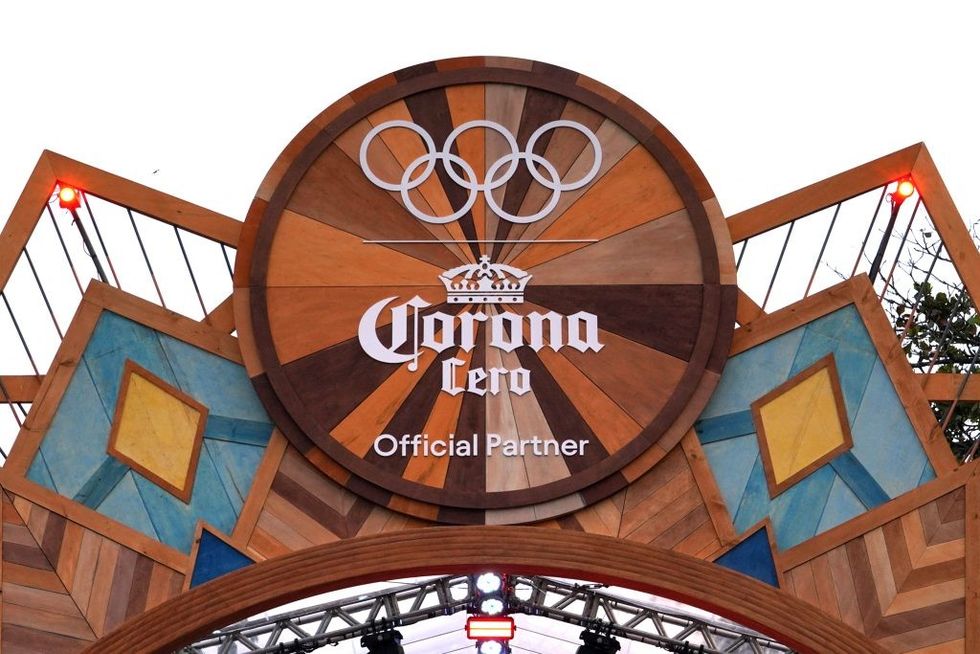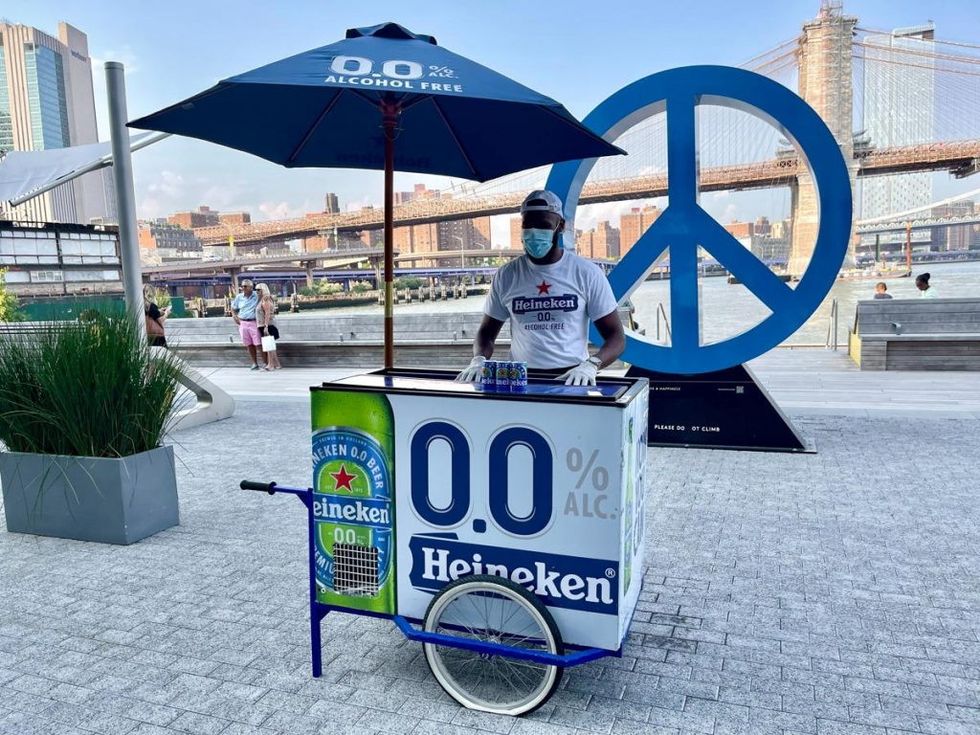Anheuser-Busch InBev is betting on Olympic sponsorship to help its new Corona Cero brew become a top-selling zero-alcohol beer globally, but it will need to catch up with rivals like Heineken 0.0, a leading player in major markets.
The Olympic sponsorship, announced in January, highlights Corona Cero's new role as the priority zero-alcohol brand for the world's biggest brewer globally, reflecting a strategy shift.
Previously AB InBev focused on specific brands in different regions, such as Stella Artois 0.0% in Britain.
The Olympics provide a platform to drive Corona Cero's expansion, said Marcel Marcondes, AB InBev chief marketing officer, enabling a more aggressive roll out than usual.
The sponsorship creates the right conditions to help turn Corona Cero from a new brand into a major player, Marcondes said.
As part of the deal, AB InBev will sell Corona Cero in Olympics-themed packaging and run TV and online advertising campaigns, tailored to a local audience across most of the 40 countries where Corona Cero is present, Marcondes said.
In around 15 countries, a Corona Cero-branded daily recap of key moments from the Games will be part of Olympic broadcasts, he said, and in many cases the hosts will be drinking Corona Cero.

"We're here to play a leadership game," he continued. "We would love to see Corona Cero become the number one no alcohol beer in the world."
Corona Cero has some way to climb. It is a new brand in many markets, competing with numerous other players also looking to cash in on the fast growth enjoyed by non-alcoholic brews.
AB InBev, for example, said its no-alcohol beer portfolio delivered high teens revenue growth in its 2023 financial year. Heineken said its 0.0 version grew double digits across 16 markets.
While still a small portion of revenues, zero alcohol beer has become a big part of major brewers' strategy.
Removing the booze offers brewers a way to drive new beer consumption, and could also shield them from the impact of drinkers cutting back amid a shift towards healthier lifestyles.
Higher margins
Alcohol-free brews also tend to offer higher margins, said George Croft, senior advisor on strategy & finance at beer consultants First Key Consulting.
They require upfront investment and involve slightly higher production costs. But they do not incur alcohol-related taxes, which reach almost 50% of the price of a beer in markets like Canada, Croft said.
The Olympic sponsorship singles out Corona Cero as a clearer rival to Heineken 0.0, which already has a leading share in many markets.
Heineken's 0.0 held the top spot among 0.0% beers across both the European Union and the US in 2023, according to a Barclays analysis of GlobalData figures. Corona Cero did not appear in the top 20.
Heineken, whose 0.0 label also boasts sponsorship deals including Formula 1, declined to comment.
AB InBev also competes in non-alcoholic beer with rivals from other major brewers and smaller independent companies that are growing fast, such as Lucky Saint in the UK. The brand sponsors sports tracking app Strava.
Lucky Saint said it was the fourth biggest brand in UK venues last year, citing an annual list compiled by food and drink research company CGA using Nielsen data. Corona Cero was not in the top 20, based on that data.
Athletic Brewing Company, which said Nielsen data shows it has more than a 19 per cent market share in the US in non-alcoholic beer, a broader category than 0.0%, is the official non-alcoholic brand of the IRONMAN Global Series.
Chief executive Bill Shufelt said it was planning to invest in marketing and distribution, and had plenty of room to grow.
Ed Kevis, global equity portfolio manager at AB InBev shareholder Aviva Investors, said one advantage for AB InBev is an app it uses to sell products to business customers, which has proven a key differentiator globally.
Corona Cero customers can win free tickets to the Games via this app and AB InBev's other digital platforms, Marcondes said.
Eight-figure deals
AB InBev's approach with Corona Cero appears to follow that taken by Heineken: throwing focus and resources behind a global line extension of a key brand, Barclays analyst Laurence Whyatt said.
AB InBev has not disclosed the value of its Olympic partnership.
Such deals typically cost eight figures, said Michael Witta, senior vice president, marketing sales and services, at sports marketing company Infront.
The sponsorship covers Paris 2024, as well as the 2026 Winter Olympics in Milan and the 2028 Olympics in Los Angeles.
Marcondes said Corona Cero benefits from the strength of the broader Corona brand - the fastest growing and most valuable beer brand globally.
In Canada, for example, Corona Cero was the top premium zero-alcohol beer by volumes and revenues within around two years of its launch, AB InBev said.
In Britain, too, the brand was growing fast, Lee Williams, beer category manager at UK alcohol distributor LWC Drinks agreed, adding: "Heineken isn't as dominant as it was."
Brands do not necessarily need to fight one another to win in a fast-growing market, but AB InBev's powerful brand and vast distribution infrastructure made it a serious challenger, said Jithen Pillay, a portfolio manager at Allan Gray, a top 20 AB InBev investor.
"Incumbency is... less of an advantage when you've got competition from another scale player."
(Reuters)







